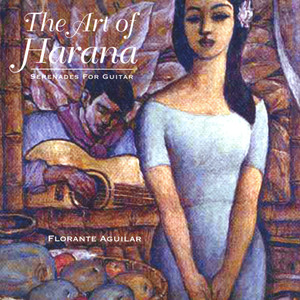
The Art of Harana - Serenades for Guitar (Remastered)
- 流派:World Music 世界音乐
- 语种:英语
- 发行时间:2008-01-01
- 类型:录音室专辑
- 歌曲
- 时长
简介
The Art of Harana - Serenades for Guitar Harana is a traditional form of courtship in the Philippines in which a man woos a woman by singing underneath her window at night. Though this is universal, it was widely practiced in old Philippines with a set of protocols, a code of conduct, and a specific style of music. In this endeavor, the most trusted instrument is the guitar where it's intimate sound complements the Spanish-influenced songs, not to mention the breezy and quiet air of a tropical night. While the practice of harana has died, this recording arranged for solo guitar, preserves the music of a long-gone era of men unafraid to express their feelings through a serenade. ************ More About the Practice Harana: For a young man in colonial Philippines, it was certainly advantageous to possess musical abilities as it was often useful in wooing a Filipina woman. However, all is not lost if he lacks the talent. It was common practice to enlist friends as well as hire the best musicians in town. Thus, harana is not always a solitary endeavor. In fact, it was also considered a social event. For the endeavor to be successful either or both of these 2 instances have to happen: 1) If the lady invites the man and his company inside for refreshments. It then becomes an impromptu mini-soiree. 2) If the lady joins in the singing. It is a little known fact that some harana pieces, such as Maala-ala Mo Kaya (track #4) is a good example, actually have sections where the lady is invited to sing her part. Harana is an exclusively nocturnal practice. Because of the daytime tropical weather, the evening offers respite from the heat. It becomes the time when everybody comes alive, full of romantic ideas, and as is typical of Filipino nature, always ready to enjoy the company of friends and loved ones. It was during this old Philippines, before the widespread use of electricity, that harana was at its ripest. I once asked a Manang (elderly Filipina) who lived in a rural area why she thought the practice of harana has died. She apparently was serenaded many times in her youth. She wryly replied "Hijo, I think it's rather difficult for a man to sing under the window of a woman who lives on the 12th floor." Unscholarly maybe, but it was Manang's way of saying that modernity has killed it. Harana was conducive only in a rural setting, a quiet breezy evening, the moon visible, the stars twinkling, and the reasonable window height of a small hut.







